Vatican Council II
One of the decisions taken in Vatican Council II was that Holy Mass should be celebrated in the language used in the country where it is being said. Before, all the prayers, invocations, epistles, psalms, and extracts from the gospel were said in Latin - one of the aspects of the universality of the Catholic Church, it was argued, as far as I remember having been taught.
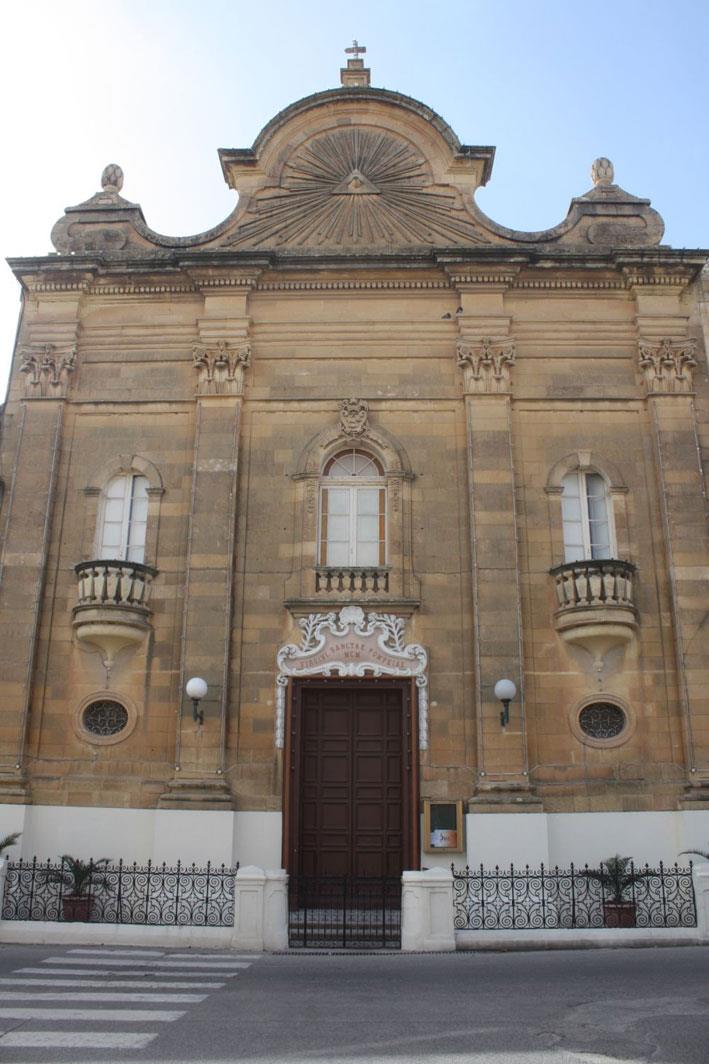
Helping at Mass in Latin
When I was still young, perhaps six or seven years old, in the sacristy, after saying Mass at Ta' Pompej Church, which was a few metres from the house where my family lived, Dun Ġorġ Mercieca Tal-Mewta, who was rector of the Dominican Sisters in Rabat (Victoria), Gozo, started teaching me how to serve at Mass, in Latin. This was in the late 1940s. Dun Ġorġ used to emphasise the good pronunciation of every Latin word of the Mass. As far as I recall, I did learn the Latin well and soon started to help him at Mass, in the very early hours of the day, every day, all the year round.
I continued to serve at Mass every day until I started teaching in Malta, in September 1960. Then, until the mid-1960s, I used to help at Dun Ġorġ's, Dun Bert Curmi's, and Fr David Leech's Masses, always at Ta' Pompej's Dominican Church, in Ta' Sannat Road, on Saturday evenings and Sunday mornings. In 1965 I must have given up the responsibility because I had started a steady relationship with Irma, from Ħamrun, Malta, whom I married in December 1967.
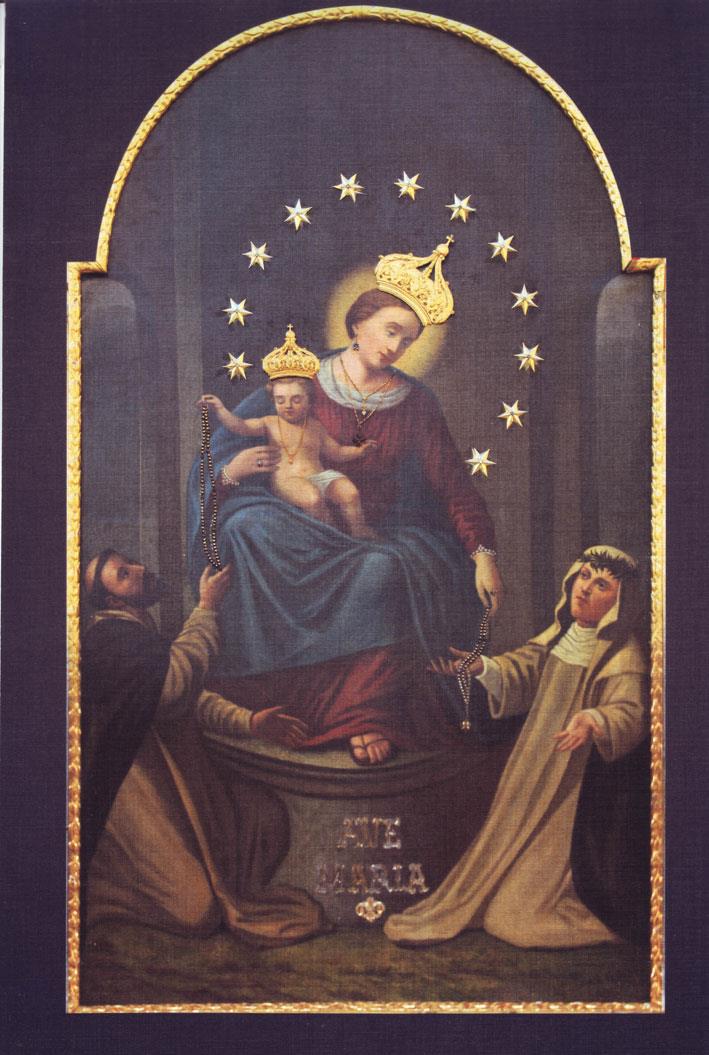
The painting of Our Lady of Pompej, which hangs above the main altar in Ta’ Pompej Church.
An altar boy
In the meantime, as I was growing up, I served as an altar boy and used to put on a white skirt and a white surplice, especially during church celebrations, even at the funeral of any of the sisters who would have passed away, and was eventually buried in the kannierja (burial vault) under the church. I used to wear these clothes also twice a year - in January and July - during the solemn celebration of the profession of new novices. I remember holding the book of special prayers for the bishop to read on while the novices had their hair cut short, their clothes changed, and then lay face downward on the altar ground in submission to their vow of being married to Jesus until death.
I used to help during special celebrations, like Christmas, Holy Week, Easter, feasts of Our Lady of Pompej and of St Dominic, and others. Although there were other altar boys who helped during these celebrations as well - among them Charlie Abela - since I was regularly helping every day, the Sisters started giving me a half-a-crown at the end of each month as a token for my service. This was increased to five shillings when I was thirteen or fourteen years old. I do not recall ever having had another increase when I grew older.

His Holiness Pope John XXIII, left, and His Holiness Pope Pius VI.
Holy Mass in... Maltese
Every Mass used to be celebrated in Latin. Naturally, neither I nor my mother and father who were very often present, or any of the congregation who were hearing Mass understood any of what was being said. But that was the norm in every Catholic country.
Until the Vatican Council II - which opened during the pontificate of Pope Saint John XXXIII on 11 October 1962, and closed under Pope Paul VI on the solemnity of the Immaculate Conception, on 8 December 1965 - declared that Holy Mass and other prayers were to be delivered in the language of the faithful. This 'directive' was adopted as soon as it was decided during the Council, towards the end of 1964; together with the acquisition of political independence on 21 September 1964 the Maltese started enjoying Holy Mass in Maltese.
The Church in Malta had printed a leaflet with some of the prayers but especially the readings of the epistle, psalm, and the selection from the gospel to be celebrated for the first time on a national level, on the first Saturday and Sunday of Advent of 1964.
However, the first Holy Mass with readings in Maltese, was celebrated on Monday 21 September 1964, by the Archbishop of Malta, Mgr Sir Michael Gonzi, on the Independence Arena.
I was helping in the celebration, in the evening of Saturday 28 November 1964 (the eve of the First Sunday of Advent), at 6.30pm.
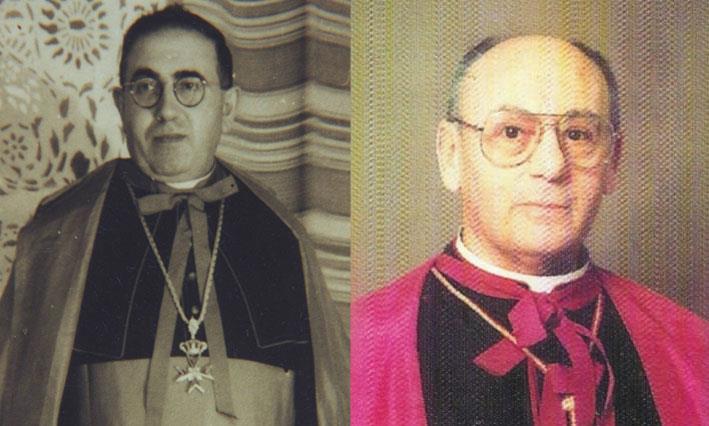
Mgr George Mercieca, left, and Mgr Albert Curmi . Photos: Francesco Pio Attard.
The celebration
The Dominican Sisters had prepared all that was needed for the official first Holy Mass to be celebrated in Maltese. They had even made a sort of a brilliant white cassock - with wide sleeves and two red stripes which ran down on both sides (back and front) of the gown and on the wrists - for the laymen helpers or readers at Mass.
It was the first time I was wearing such attire; the robe was not used any more after some years [although I had seen a helper still using it during a Mass celebrated in Saint-Vincent, in Valle D'Aosta, on Saturday 20 July 2024].
I do not recall who concelebrated with Dun Ġorġ. However, it was a concelebrated Mass; there were surely another two priests besides Dun Ġorġ who said Mass, on that Saturday evening, one of them Fr Albert Curmi, perhaps.
Ta' Pompej Church was very well lit and all the chairs were occupied with men and women who lived nearby, including my parents.
The sisters were gathered in the large room/hall behind the main altar, behind the window with a fine grid; they could see the priests concelebrating - without being seen - besides hearing Mass from there.

The page with the text about Susanna, from Daniel, in an Italian Missal. Photo: Mgr Jesmond Manicaro
The reading...
After the singing of the introductory hymn, while the celebrants and altar boys walked out of the sacristy and on to the main altar beneath the large painting of our Lady of Pompej (a replica of the original in the basilica of Pompej, in Italy), there was a little bit of commotion until the congregation sat down on their chairs.
Then, silence fell and Dun Ġorġ started with the introductory prayers, in Maltese.
In independent Malta, with the use of the Maltese language enshrined in the Maltese Independence Constitution, the Maltese Church, now, was using Maltese too. The sisters behind the fine grid and the congregation made up of men and women - many of whom lacked secondary education - listened and participated attentively to whatever was being said by Dun Ġorġ.
Then came the moment for the readings.
It was my turn. I had prepared myself. I walked on to the ambone, placed the leaflet with the readings in Maltese on it, and cleared my throat. Now I was ready to render the reading of the extract from the Old Testament as best as I could.
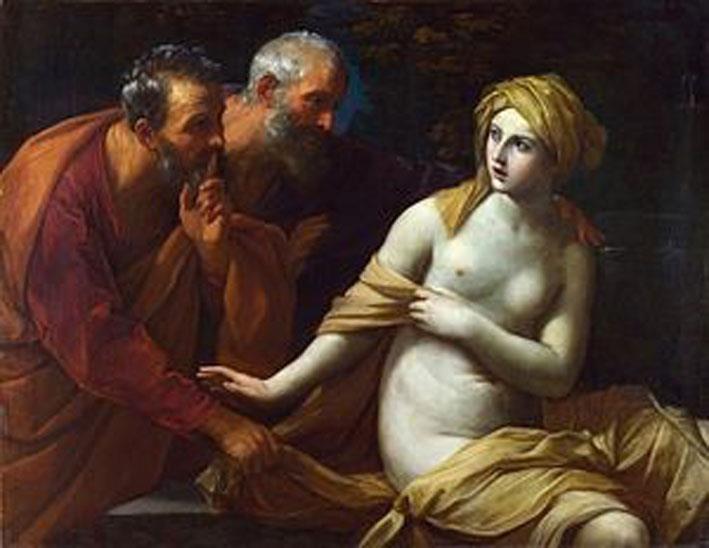
‘Susanna and the Elders’ by Guido Reni Photo: The National Gallery, London.
The epistle
'The first reading, from the Book of the Prophet David...'
The silence around me was almost frightening. I could almost hear the breathing of the people in front of me. Even before I started the rendition of the proper text, my mind was full of thoughts... How would the congregation behave listening to the narrative I was going to read out, for the first time in Maltese? Were the priests "really" aware of the contents of the selection from Prophet David's Book? And what about the sisters... Did they ever learn about the story I was about to deliver in straightforward Maltese?
The first lesson was made up of a selection from the Book of David: Chapter 13 (which is an extension), which narrates the episode where chaste Susanna is voyeured by two old men while she was bathing herself, nude.
I do not remember from where in David's Book the selection started, or where it ended. However, the whole incident of nude Susanna being watched by two old men hidden among the trees in an orchard, having a bath, was there.

La Casta Susana - Juan Manuel Blanes... A synopsis of the narrative
As the story goes, a beautiful Hebrew wife named Susanna was falsely accused by two lustful voyeurs. After having sent her attendants away, as she bathes in her garden, two lewd elders secretly observe the lovely Susanna. As she was making her way back to her house, they accost her, threatening to claim that she was meeting a young man in the garden unless she agrees to have sex with them.
She refuses to be blackmailed and is arrested and about to be put to death for promiscuity when the young Daniel interrupts the proceedings, shouting that the elders should be questioned to prevent the death of an innocent. After being separated, the two men are cross-examined about details of what they saw but they disagree about the tree under which Susanna supposedly met her lover. The first says they were under a mastic tree, and Daniel says that an angel stands ready to cut him in two.
The second says they were under an evergreen oak tree, and Daniel says that an angel stands ready to saw him in two. The great difference in size between a mastic and an oak makes the elders' lie plain to all the observers. The false accusers are put to death, and virtue triumphs.
The silence in which I had started the reading persisted all throughout the whole reading.
And the celebration of the Holy Mass continued, in Maltese.
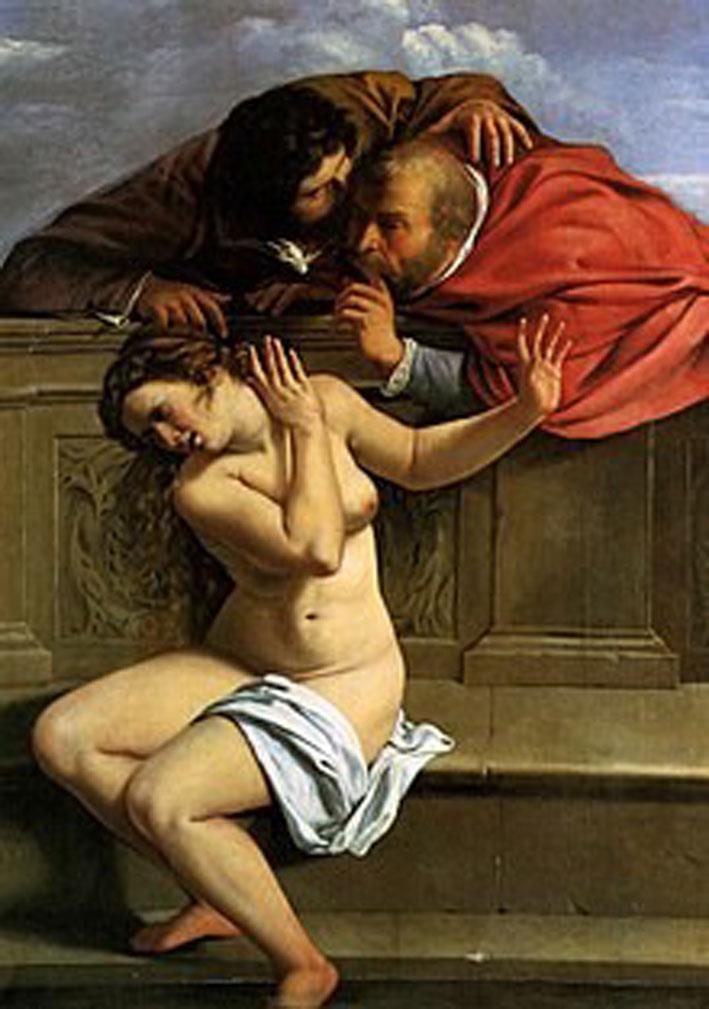
After the Mass
When Mass finished, and the priests who celebrated Mass returned to the sacristy, there started a discussion. The reading from Daniel's Book was the subject being talked about. Diverse opinions were exchanged. There was also someone who stated: 'This is the fruit of presenting the Bible readings in Maltese!'
As a matter of fact, the selection about Susanna's story was always read during Holy Mass celebrated on the Saturday after the Third Sunday, in Lent. But that was in Latin. The Church in Malta must have seen the text - now delivered in Maltese - to be a little bit shocking especially for those times, and decided to change it for the first Holy Mass in Maltese.
For the celebration in Ta' Pompej, the changed version did not arrive.
The afterwards
I could never have an idea of how the sisters reacted to the story. I could never learn if the lesson of justice for Susanna did dominate over the wicked immoral wishes of the old men. And I never ever heard someone who had been at Ta' Pompej on that evening - among them my parents - say anything about the story. As if voyeurism and sexual covetousness were common sins no one would talk about.
It was I who talked about Susanna's story the following day.
I expressed my wonder about how, on the first occasion of saying Mass in Maltese, especially at Ta' Pompej - where the Dominican sisters and neighbours like my parents were the congregation - the Church in Malta chose such a 'sexy' reading.
A substitution
'So you have read Susanna's story!' was the exclamation of a priest with whom I was talking, on the following Sunday morning.
'Yes. I did. It was the reading printed on the leaflet prepared for the celebration of Holy Mass in Maltese by the Church authorities in Malta,' was my sincere observation.
'That reading was substituted,' was the priest's remark, which he expressed with a smile on his face, and moving his head sideways. 'A new reading was sent to replace it.'
I doubt if there was another church in Malta or Gozo, where the reading from Daniel's Book - which dealt with chaste Susanna's story - took place, on Saturday 28 November 1964. The congregation gathered at Ta' Pompej must have been the only one who experienced the lesson of 'justice' for Susanna, who had been accused of 'laying' with a young man, by two elderly lecherous voyeurs because she declined to their sexual desires - in Maltese!